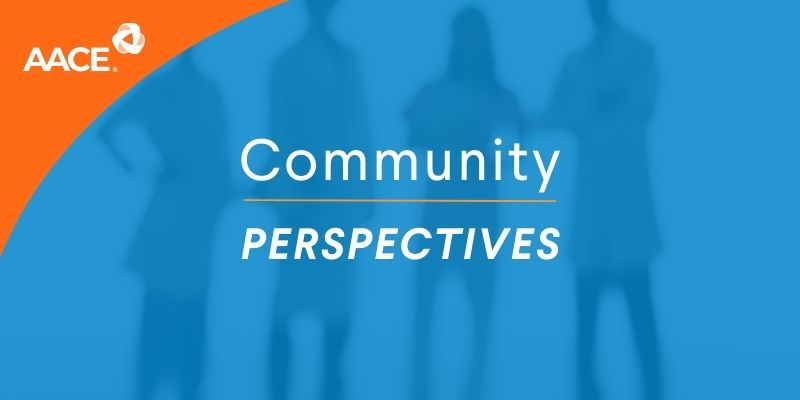
- Log in to post comments
I paused, closed my eyes, and smiled when I saw the email from AACE that I had been selected as the 2024 recipient of the Lewis E. Braverman Endocrinology Fellow-in-Training Educational Grant because I saw this as more than an award, it was an opportunity to bring together my clinical training, cultural roots, and passion for global health.
In December 2024, I completed a 3-week rotation at Bharatpur Hospital, a tertiary care center in the Chitwan district of Nepal under the mentorship of Dr. Kalyan Sapkota, a respected endocrinologists in the region. The hospital serves patients from both urban and rural regions of Nepal and neighboring parts of India, offering a valuable window into endocrine care in a global context .Working alongside him, I encountered a broad spectrum of endocrine pathologies in diverse patient population-obesity, diabetes, thyroid dysfunction, Cushing’s syndrome, acromegaly, PCOS, and adrenal disorders often requiring plans based on limited lab work and imaging capabilities. Exchange of ideas with Dr. Sapkota and the dedicated staff at Bharatpur Hospital provided a valuable model for how international collaboration can benefit both institutions and, most importantly, patient outcomes. This environment challenged me to think critically emphasizing the importance of culturally sensitive and cost-effective strategies.
In addition to clinical duties, I was engaged in discussions on public health initiatives focusing on obesity prevention. I also led an obesity awareness and prevention program for adolescents in nearby schools focusing on lifestyle modification, healthy eating, and physical activity. I was able to provide educational sessions, organize cooking demonstrations using locally available foods, and conduct physical activity sessions. We distributed nutrition education materials in both Nepali and Hindi, used weighing machines and BMI trackers to monitor participants’ progress. We also engaged youth through culturally relevant discussions on body image, diabetes prevention, and healthy lifestyles. These workshops emphasized simple, sustainable lifestyle changes like switching from deep-fried snacks to home-roasted grains or incorporating morning walks into school routines. These experiences reinforced my understanding of the social determinants of health and the importance of integrating cultural beliefs into medical care.
I saw young patients with newly diagnosed type 1 diabetes who had never seen a glucometer, older adults with goiters so large they hadn’t been able to button their shirts, and women navigating PCOS with very limited support. These were not just medical cases; they were stories of people doing their best within a system strained by geography, economics, and limited infrastructure. Being fluent in Nepali and Hindi allowed me to communicate with patients in their own words, not just medically, but emotionally. I could explain conditions with cultural relevance, listen to fears without translation gaps, and counsel patient and family members. What struck me was the patient volume and disease burden. We would see 30-35 patients in a single outpatient session. Many patients traveled days to be seen. Most had delayed care due to cost, distance, or cultural stigma.
One particularly unforgettable case involved a 24-year-old woman with classic sign of Cushing syndrome -Hypertension, truncal obesity and proximal muscle weakness confided in me that she feared being a burden to her family. She had been misdiagnosed for years and labeled as “just obese.” Imaging and hormonal workup were limited, and it took coordination across several departments just to complete a dexamethasone suppression test. When I explained the cause in her own language, involving her parents, a social worker, they left empowered with clear, simple strategies to support her, she teared up. “We’ve never had a doctor come talk to us like this.” That sentence left an imprint on me. That moment reminded me the privilege of knowledge.
This experience changed the way I view endocrinology — not as a set of protocols, but as a dynamic field that must adapt to social, economic, and cultural landscapes. It reminded me of how much we take for granted in Western training environments from timely labs to advanced imaging to patient portals. The rotation pushed me to re-learn how to rely on my clinical exam, history-taking, and contextual judgment. There were days when lab results weren’t available, and decisions had to be made based on what we could observe and reason. I also gained an appreciation for the physicians and nurses who work with limited tools but unlimited dedication, to care for their communities.
Leaving Nepal after the rotation, I didn’t feel like I was simply returning to my fellowship in the U.S. I felt like I was carrying something heavier than luggage. I brought back a new clinical insights of what it means to be a physician- someone who listens, learns, adapts, and meets patients where they are. I feel more committed to advancing equitable, culturally informed care whether in underserved communities in the U.S. or abroad. Looking ahead, I aim to incorporate the lessons learned into my practice.
Thank you, AACE, for this transformative experience and to my mentors Dr. Kalyan Sapkota and Dr. Krishna Paudel for their generous support during my rotation.
The Dr. Lewis E Braverman Endocrine Fellow in Training Educational Grant is a one-of-a-kind grant program offered to fellows in the United States to take part in unique clinical experiences worldwide.
Learn More
Login to leave a comment and join the conversation